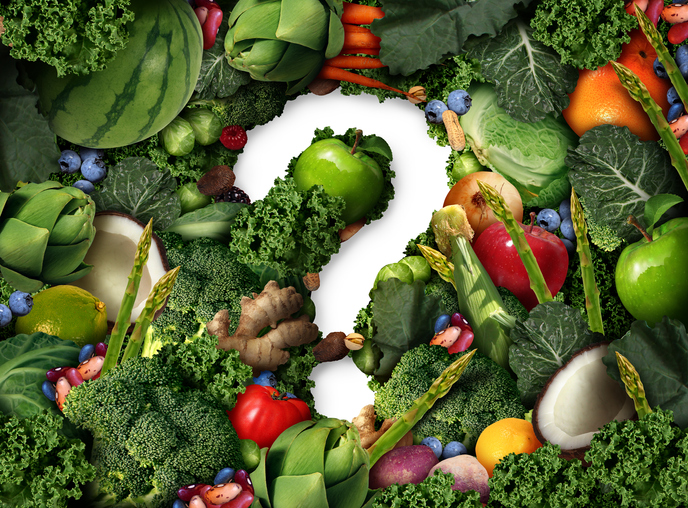We did! Here are some deep dives into some of the questions we all face when we’re standing in the supermarket, trying to decide what foods are delicious, best beneficial to our bodies…and which are also not too expensive.

Is “eating local” healthier than not?
Yes, but it might not be your health. Eating locally-produced produce does affect the world around you. Whether it’s organic or not, food that’s grown nearby is going to be fresher, with means it’s going to taste better and be nutritionally sound. Low “food miles” means that it’s better for the environment, because it didn’t need to spend as much time on a gas-using, exhaust-spewing vehicle to get to your local grocery store.
Is organic food really better for you than non-organic food?
Some studies have concluded that the health benefits aren’t really measurable. That doesn’t mean that organic foods aren’t good for you, just that it’s probably impossible, as science currently stands, to determine that you became “healthier” (whatever that means) because you ate those foods. It’s all very complicated. For example, organic fruits, vegetables, and meat tends to sell at a much higher price point than its nonorganic counterparts. That means people who can and do buy organic are much more likely to be financially comfortable, literally affording them the freedom to make healthier choices throughout their lives…making it hard to pinpoint if that pesticide-free salad they had for lunch that one day is why they live to be 90.
Can people spontaneously combust? How many organs could you live without? In "Who Knew? Human Anatomy," you’ll learn gobs of fascinating facts about the most sophisticated machine in the world—the human body.
How much fruit and vegetables does one have to consume to be healthy?
The “five a day” rule perpetuated by health experts and nutrition experts over the years is a pretty solid guideline…but also the bare minimum. (Or maybe not: only about three in 10 adults eat that much healthy produce each day.) That “five” number came about as a calculation of all the various vitamins, minerals, and health benefits of fruit and veggies. Consuming 400 daily grams can lower the risk of scary stuff like stroke, heart disease, and type II diabetes. It’s also full of fiber, which aids in digestion and just helps keep the body healthily humming along.
Is dried fruit and fresh fruit nutritionally equivalent?
Yes…and no. Dried fruit is obviously just fresh fruit with the moisture removed to make for a more shelf-stable product. That also concentrates and condenses all the flavor as well as the sugar, meaning a portion size of dried apricots, for example, is different from a serving size of fresh apricots. Most nutrients remain intact in dried fruit, too, except for vitamin C, which is heat sensitive, meaning it can burn off during the drying process. Or maybe you take your fruit in the form of juice? Most if not all of the nutrients remain, but it lacks the fiber obtained through the consumption of whole fruit.
Read more on this topic, and other ones about the human body (and what goes into it), in Who Knew? Human Anatomy, available now from Portable Press.








